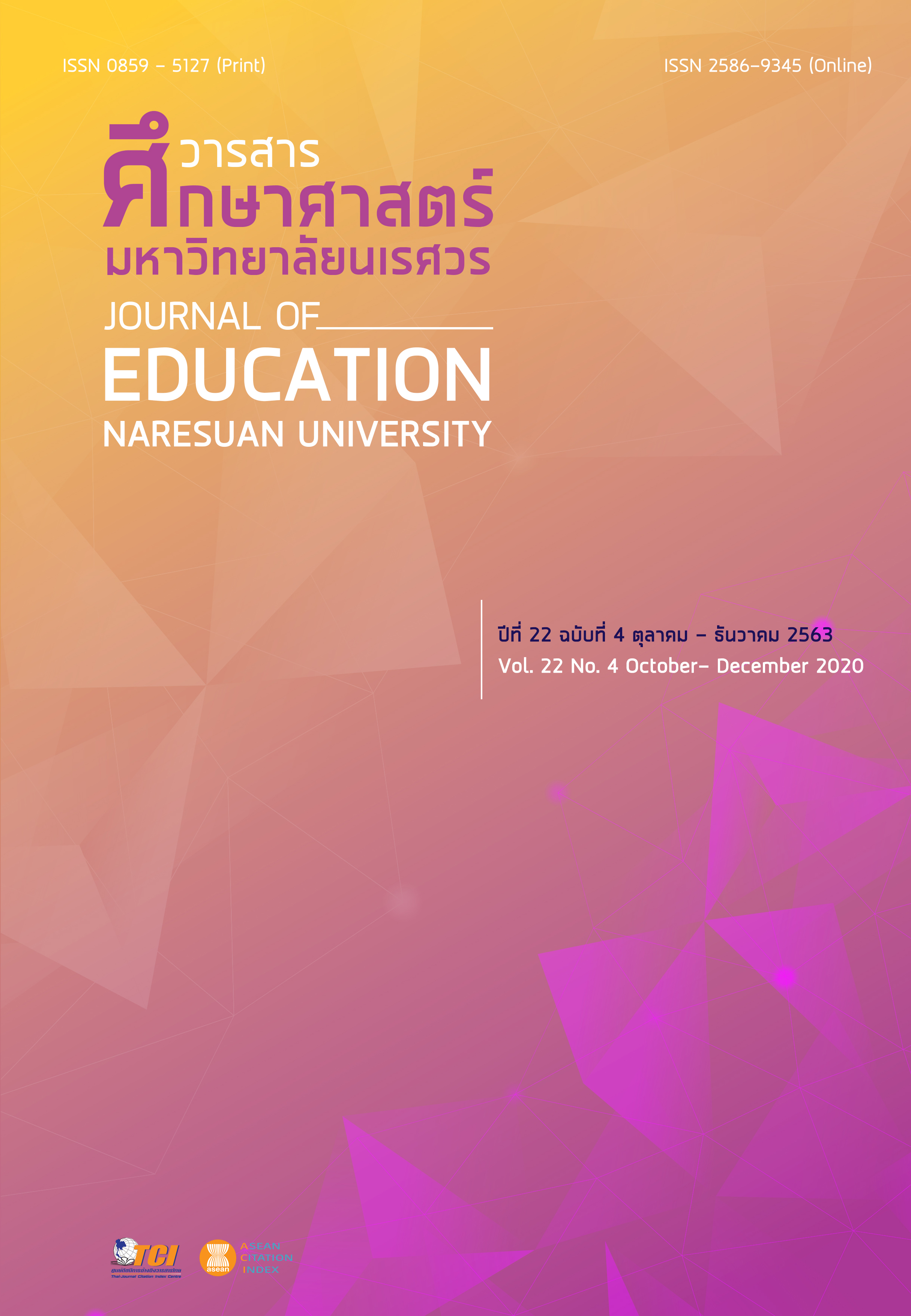LEARNING OUTCOMES OF RESEARCH-BASED LEARNING ON CONTENT OF KNOWLEDGE MANAGEMENT IN ORGANIZATION ผลการเรียนรู้ของการจัดการเรียนรู้บนฐานการวิจัยในหัวข้อการจัดการความรู้ในองค์กร
Main Article Content
Abstract
The purposes of this research were to study learning outcomes of research-based learning in both techniques: using research processes as steps in teaching and learning and studying previous research. This research focused on learning achievement of students before and after learning in each technique and comparing learner’s satisfaction between two techniques of research-based learning. The sample group consisted of 40 students in Information Technology and Communication Programme at Faculty of Science, Prince of Songkla University. The participants were the students who registered both courses in 308-374 Knowledge Management (KM) and 308-412 Management of Information Technology in Organization (MITO). The research instruments were leaning achievement tests of KM course and MITO course, and satisfaction questionnaire. The data were analyzed by descriptive analysis, t-test for independent samples and t-test for dependent samples. In RBL based on research process technique, the results showed that the learning achievement of sample students was than before learning. Similarly, the learning achievement of sample students in RBL based on studying previous research technique also was higher than before learning at the .05 level of significance. However, students satisfied to learn the knowledge management using technique of research process higher than the technique of studying previous research at the .05 level of significance.
Article Details
The owner of the article does not copy or violate any of its copyright. If any copyright infringement occurs or prosecution, in any case, the Editorial Board is not involved in all the rights to the owner of the article to be performed.
References
Areekul, C. (2017). Research for learning development in the social studies, religion, and culture. Journal of Education Naresuan University, 19(4), 331-342. [in Thai]
Chumsukon, M., & Maneepitak, N. (2016). Learning process arrangement based on research-based learning for the education for environmental development subject. Journal of Education Khon Kaen University, 39(4), 41-52. [in Thai]
Dongpakdee, K., & Panjan, C. (2016). Developing a learning activity combined between research-based learning with cooperative learning approach, for history content strand, to promote self-directed learning and critical thinking of Matthayomsuksa 3 students. Buabandit Journal of Educational Administration, 16(1), 57-65. [in Thai]
Ketchatturat, J. (2017). The results of research-based teaching and learning for developing the research ability of graduate student. KKU International Journal of Humanities and Social Sciences, 7(2), 100-119.
Nilson, L. B. (2010). Teaching at its best: A research-based resource for college instructors. USA: Jossey-Bass.
Petcharat, S. (2016). The undergraduate students’ development by research-based real experience course LG2209202 Economy of Local Community. Rajapark Journal, 10(19), 25-34. [in Thai]
Pithiyanuwat, S., & Bunterm, T. (1997). Research design and research tools. Bangkok: Chulalongkorn University Press, 483-505. [in Thai]
Prajankett, O., Indhraratana, A., Prasittivejchakul, A., & Julawong, O. (2017). The effect of research-based learning management in health system and health promotion subject on learning outcome and innovative work behavior of nursing students. Journal of the Royal Thai Army Nurses, 18(2), 55-63. [in Thai]
Saiduang, P. (2016). The development of analytical thinking skills of UBRU students from reading English academic articles. Journal Ubon Ratchathani Rajabhat University, 7(2), 215-226. [in Thai]
Viphatphumiprathes, T. (2014). Effects of research-based learning on undergraduate students’ knowledge of ASEAN culture. Journal of Education Naresuan University, 16(1), 54-62. [in Thai]
Wichadee, S. (2011). Education in the new paradigm: Research-based learning. Executive Journal, 31(3), 26-30. [in Thai]


